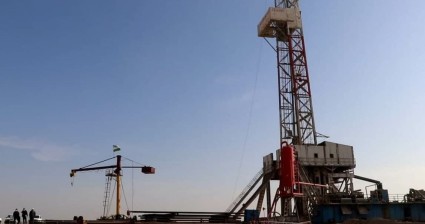When you run a large landlocked central Asian state rich in uranium and with big economic ambitions, what do you do? You build a nuclear power plant.
That has been the thinking in Uzbekistan, central Asia’s most populous country with about 33m people, and with the population and energy demand both forecast to grow.
Tashkent has embarked on a range of reforms to open itself up to the world, improve the business climate and boost its economy since Shavkat Mirziyoyev in 2016 succeeded Islam Karimov, who had ruled the country for almost three decades, as president.
The decision to build the first commercial nuclear reactor is the latest move to develop the Uzbek economy. The long-mooted project will involve Russian help that Mr Mirziyoyev has said provides “a strong impulse for co-operation between the states”.
Together with Russian counterpart Vladimir Putin, Mr Mirziyoyev launched the initiative in Tashkent in October with the start of survey works for the plant, the only nuclear project in central Asia after Kazakhstan decommissioned its nuclear reactors in the late 1990s.
Kazakhstan, the world’s leading uranium producer, has been reluctant to launch new nuclear reactors because of public opposition as memories of the ecological harm from nuclear tests at the Semipalatinsk site in Soviet times remain strong.
But Uzbekistan, itself the world’s seventh largest uranium producer, sees the nuclear project as a pass into the “elite club” of nuclear powers, according to Jurabek Mirzamakhmudov, head of Uzatom state nuclear agency, which was established in July to lead national nuclear development.
“We will be joining the club of countries with peaceful use of nuclear energy. That is an elite club. This is a whole new level, different type of relationships, new technologies, science and education development,” he told the Financial Times.
Stanislav Pritchin, head of Central Asia and Caucasus group at the Institute of Oriental Studies at Russia’s Academy of Sciences, said: “This is a positive achievement and big success of Shavkat Mirziyoyev. It would make Uzbekistan the first country in the region using a nuclear power plant and will make it a leading producer of electricity.
“It adds to Uzbekistan’s prestige but certainly follows a rational approach. Uzbekistan needs electricity. It often experiences gas shortages, and the nuclear power station project solves this issue. To be a regional power and to attract investors, Uzbekistan needs stable electricity supply.”
Some 30 countries operated nuclear power plants as of the end of 2017; 20 had past or planned nuclear projects, according to the International Atomic Energy Agency.
Uzatom and its strategic partner, Russia’s state nuclear agency Rosatom, plan to build two reactors of the latest generation, starting the first in 2022 and launching it in late 2028, with the second following 18 months later, according to Mr Mirzamakhmudov.
“The choice was made in favour of nuclear power given uranium availability and most importantly, economic benefits to the country. Today this is one of the cleanest, ecologically safest sources of power, as well as the cheapest one after hydropower,” Mr Mirzamakhmudov said.
Uzbekistan’s current reliance on coal, gas, oil and hydropower will not be enough to meet growing demand, even with plans to double hydropower capacity by 2030.
Nuclear energy is expected to account for 15 per cent of the country’s power balance and ensure stable energy supply with expectations of power demand doubling by 2030, according to Uzatom.
Uzbekistan was also taking steps to develop solar and wind energy, but would only rely on them for about 3 per cent of power generation in a decade as neither was a stable supply source, said Mr Mirzamakhmudov.
The project is of strategic interest to both Russia and Uzbeks. It will help Uzbekistan generate economic growth.
It will enable the Russians, who are providing financial backing, to re-establish themselves as the primary regional power in terms of security and economic muscle, according to Camilla Hagelund, principal analyst at UK-based risk consultancy, Verisk Maplecroft.
“Central Asia is often described as the soft underbelly of Russia. You have continued security issues in Afghanistan. Central Asia is like a buffer in between that and a potential security threat in its own right,” she said.
Moreover, China had been expanding its influence in the region: “There is a level of competition between Russia and China, and it is very important for Russia to continue to demonstrate that it is the primary regional power for central Asia.
“In part, it is an element of a wider ambition to be a great power. If you are not important in your local neighbourhood, then that undermines in essence that you’re a global power,” she added.
Mr Putin has expressed hopes for deeper economic and trade co-operation. Other large Russian companies, including giant gas producer Gazprom and the second-largest oil producer Lukoil, already invest in Uzbekistan’s gas processing industry, and may look to increase their involvement.
Uzbekistan has said it is open to co-operation with any investors — “be they Russian, Korean, Chinese, or others”, said Mr Mirzamakhmudov.
If it chooses to export gas, its most likely buyers are Gazprom or neighbouring Kyrgyzstan or Tajikistan, according to state officials and experts. On top of this, revenue also may come from planned electricity exports to neighbours, primarily Afghanistan, Mr Mirzamakhmudov added.











